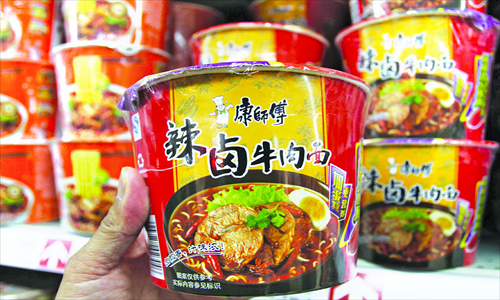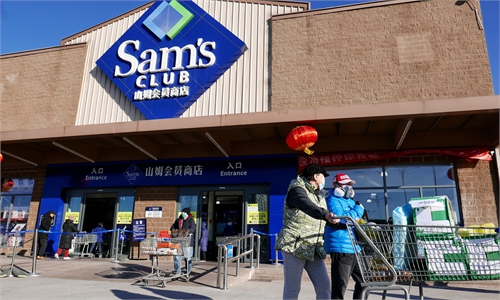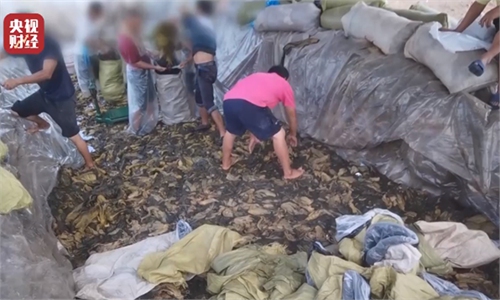Chinese consumers urge harsh punishment for food safety violations amid anger over revelations

A bowl of "Master Kong" instant noodles sold in a supermarket in Xuchang, Central China's Henan Province in April Photo: CFP
Food safety concerns topped China's social media on Wednesday as consumers were shocked and angered by some problematic enterprises' problematic sanitation conditions and lack of food safety management, as revealed on World Consumer Rights Day, and they called for stronger punishment.
Fields where workers make pickled vegetables are muddy grounds littered with cigarettes, and workers were found smoking and stepping on the vegetables with their bare feet as they worked, China Media Group reported in an investigative story for World Consumer Rights Day, which fell on Tuesday.
The topic with the hash tag "muddy ground pickled vegetables" topped China's social media platform Sina Weibo on Wednesday, with 180 million views and 30,000 discussions as of press time. "I would never dare to eat such pickled vegetables," commented one social media users.
Among the enterprises that used these vegetables was the Hunan Chaqi vegetable group, a pickle supplier for popular instant noodle brand Master Kong.
Master Kong apologized for faults in its management and immediately suspended its cooperation with Chaqi. Relevant pickled vegetable instant noodles were removed from the shelves.
The official website of the Chaqi vegetable group, which is no longer accessible, showed that its business partners included US fastfood chain KFC and Uni-President Enterprises Corp.
KFC denied any relationship with the enterprise, while Uni-President, which specializes in pickled vegetable beef noodles, said it had suspended cooperation with the firm at the end of 2012.
Chaqi's official WeChat account showed that it had won the honor and certification of being a "China Well-Known Trademark" and recorded business income of 870 million yuan ($137 million) in 2020.
Shuanghui Investment & Development Co, a slaughtering and meat processing company based in Central China's Henan Province, was also found to have problems in one of its factories. Pork chops that fell to the ground were picked up and packaged, according to media reports.
Shuanghui later apologized for these food safety issues, sealed 310 kilograms of the products in question and suspended the work of the person in charge.
The State Administration for Market Regulation on Wednesday ordered market regulators in Hunan and Henan provinces to thoroughly investigate and punish cases of illegal food production and operation, as reported by media.
While law enforcement authorities have responded swiftly after food safety problems occur, there is also another big problem needs to be addressed - increasing punishment for violations, experts said.
Penalties in similar cases overseas can easily lead the companies into bankruptcy, Lai Yang, a member of the China General Chamber of Commerce expert committee, told the Global Times on Wednesday.
"Many domestic companies would rather take the risk, if they can make huge profits," he said.
China has been making great efforts in ensuring food safety. According to the newly amended Food Safety Law, which took effect in 2019, in addition to punishment of enterprises, individual workers violating the law in cases that have serious consequences can be fined 10 times the income they earned from the enterprise in the previous year.
However, the implementation of relevant regulations at the local level is not efficient, where fines are usually low as local governments need to take local jobs and economic development into consideration, Zhu Danpeng, a veteran food industry observer, told the Global Times on Wednesday.
"Compared with fines of hundreds of millions overseas, the cost for crossing the food safety red line is relatively low for domestic production enterprises," Zhu said.
It is expected that China's food industry can step into a healthy, benign and orderly development path as the punishment of such illegal behavior increases, Zhu noted.



